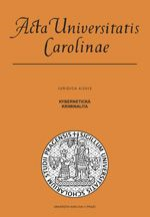Daňové aspekty svěřenských fondů. Projev absence sídla svěřenského fondu v daňovém právu
Taxation of Trust under the New Civil Code. Absence of Residence of Trust in the Tax Law
Author(s): Lenka GeržováSubject(s): Law, Constitution, Jurisprudence
Published by: Univerzita Karlova v Praze, Nakladatelství Karolinum
Keywords: trust; civil code; tax law; formal concept of residence; material concept of residence
Summary/Abstract: The new Civil Code provides a large number of changes in terminology and substantive nature. One of the important substantive changes is incorporation of Trust in Czech legal order. Introduction defines basic features of Trust under the new Civil Code. The conclusion is that the Trust under the new Civil Code and the Trust in the legal system of common-law are two different institutes. Trust under the Civil Code is only inspired by the common-law Trust, it is quasi trust. The following chapter focuses on description how the Tax law copes with incorporation of Trust in private law. For most tax laws, the Trust is the taxpayer and is granted with legal personality. The core of the article focuses on the discussion whether Trust has or has not residence, and what impact do this findings have on the Tax law. A partial conclusion is that although the new Civil Code is based on a formal concept of residence, which is missing at the Trust, there can be distinguished residence according to the material conception. Residence in material conception is defined by the place where the Trust is managed. The following pages describe reflection of formal concept of residence in the Tax Law and how to apply the conclusion that Trust can have residence according to the material conception.
Journal: Acta Universitatis Carolinae Iuridica
- Issue Year: 59/2013
- Issue No: 3
- Page Range: 125-137
- Page Count: 13
- Language: Czech

